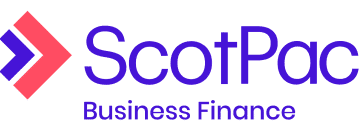Home > Business Loans > Floorplan Finance
Floorplan Finance
Find the best solution for your business when selling high-value items by comparing your floorplan finance options with Savvy.
Author
Savvy Editorial TeamFact checked








What is floorplan financing and how does it work?
Floorplan finance in Australia is simply another name for inventory finance. This is different to how standard unsecured business loans work in that the process of satisfying all parties is different. When considering how floorplan financing works, the process is as follows:
- Your business applies to a lender to gain access to funds and, if approved, the lender will forward these directly to your supplier.
- Once your supplier receives the funds it needs to cover your business’ order, it can organise a shipment of goods to be delivered to you.
- After your business receives its supplies, it can sell them and use part of the revenue generated from sales to repay the lender.
The line of credit is revolving, meaning it can stay open as long as it’s viable and prevents your business from needing to reapply for a short-term loan each time it purchases new stock from its supplier. Additionally, like unsecured business loans, this type of finance comes without any requirement for asset collateral, meaning it’s accessible for smaller or newer businesses who may not have the assets required to secure a loan.
The amount your business is able to borrow will be dependent on several factors, including the amount of revenue it generates each month or year and its consistency, its credit score and history, time in business, repayment periods and more. Because it’s a line of credit, you can access up to the maximum available amount whenever you need and pay it down at a pre-determined pace, as agreed upon by you and your lender.
What are the benefits of floorplan finance for my business?
There are a number of key benefits of floorplan finance in Australia. Some of these include:
Helping build a positive relationship with your supplier
With the help of financing provided by floorplan finance, your business can be aided in the building of positive relationships with suppliers which may not otherwise be possible without financial assistance. Consistently paying debts on time and in full will be recorded as positive credit behaviour by some suppliers, which can help boost your business’ credit score.
Maintaining your business’ cashflow
By having your business’ relevant expenses paid for upfront by your lender, you'll have more general revenue freed up to distribute across the rest of your business. If your business were to pay for these orders without financing assistance, you may find covering the cost of the importing and shipping of goods makes a significant dent in its available cash.
Short-term solutions to avoid dragging out debt
Sometimes, longer-term debts aren’t exactly what your business needs, especially if they result in a greater interest charge overall. By shortening this term to within your sales period, your business can stay on top of its debt and ensure that it’s off the books sooner rather than later. This can also improve its credit score over time.
Types of business loan
The most common type of business finance, unsecured loans enable businesses to access the funds they need without attaching an asset to the loan as security. Some lenders may allow you to borrow up to $500,000 and, because there's no collateral, offer same-day approval.
If your business already owns valuable assets, such as property or expensive equipment, you may choose a secured business loan instead. These loans may increase your borrowing power beyond what an unsecured loan can offer and, crucially, typically come with lower interest rates.
Business loans don't always have to be worth hundreds of thousands. If you're operating a small business and need a boost to help you keep on top of your expenses or expand your company, you may be able to take out a loan starting from as little as $5,000 and unlock further capital.
Just because you don't have all the required documents for a standard business loan doesn't mean you're out of options. Low doc finance enables you to use alternative documentation, such as other business financials, in the application process to access the funds you need.
A commercial line of credit allows you to draw from your loan account whenever your business needs access to their funds, instead of managing a lump sum and repaying it like a regular loan. This can add flexibility to your finance arrangement, providing money when you need it.
Invoice finance presents another option to business operators looking to free up cash through outstanding invoices yet to be paid by their customers. Your invoice finance can either be invoice discounting or factoring, which present different options when it comes to your invoices.
A common reason for seeking out a loan is to purchase commercial equipment. You can do this either with an unsecured arrangement or one with the equipment itself as collateral, with the latter potentially increasing your borrowing power and lowering your interest rate.
With this finance, when your business purchases product, your supplier provides an invoice which you send to your financier and pledge to repay by a set date. From there, your supplier sells the invoice to your financier at a discounted rate, while you repay the full amount to your financier.
Under an inventory finance agreement, your lender pays your supplier directly for inventory, which allows it to be signed off and sent to you. From there, you can pay off your debt within a pre-determined period to your lender, which may be longer than the regular debtor period.
An overdraft facility is attached to an existing financial account belonging to your business, such as a transaction or savings account, and enables you to borrow up to a set limit after the account’s balance reaches zero. These overdrafts are repaid with interest, but only on what you use.
You may simply be in a position where your business needs a boost to its cash flow. If this is the case, there’s a range of stop-gap solutions which may be suitable for your situation, from standard unsecured loans to specialist cash flow loans, invoice finance or even an overdraft.
Why compare business loans through Savvy?
100% free service
It won't cost you a cent to compare a range of business loans through Savvy, enabling you to come back at any time.
Reputable lending partners
You can compare business loan offers through a range of trusted Australian lenders, giving you more confidence in the process.
Online comparison process
You can fill out our simple online form to generate business finance quotes tailored to your business' needs in minutes.
Why your business may need floorplan finance in Australia
To cover short debtor periods
Because the items your business is purchasing to sell to customers are likely to be of a high value, this type of financing enables your business to close the gap on short debtor periods which may squeeze its available cashflow.
For instance, if you purchased $20,000 worth of computers and your supplier wanted to be paid within 30 days, but your business’ average selling period was 45 days, it may struggle to repay the supplier in time, but floorplan finance can immediately pay this debt in full.
To avoid dipping into your business’ working capital
As mentioned above, this type of finance allows you to sidestep the need for your business to shell out a significant chunk of its available funds to pay for the inventory required. This is especially important if your business’ revenues are lower after working expenses are subtracted, as the potential strain brought on by turning around a debt within a short timeframe is reduced significantly.
To take advantage of an exceptional stock deal
You might simply need an inventory or floorplan finance deal to put your business in a position to capitalise on a great deal. Every so often, suppliers can offer deals which are simply too good to pass up. Although your business may not be in a position to purchase these goods on its own, floorplan financing helps bring them within reach.
By saving a significant amount on their purchase price, you can increase your business’ potential profits.
To cover the cost of a new line of goods
It can be incredibly difficult if you’re looking to introduce a new product line while still selling (and eventually phasing out) your existing line. This finance type can help you bridge the gap between the two, helping ensure your business is able to manage their respective costs at once.
This is especially the case if you’re not planning to sell your new line for some time, allowing your debts to be covered sooner.
To reduce the financial strain on seasonal businesses
Seasonal businesses can struggle when it comes to covering the debt periods enforced by their suppliers, as they may be buying stock months before they’re able to sell it. As a result, inventory financing is a useful and effective way to work around this, as your suppliers can be satisfied financially before you’d otherwise be able to repay them in full thanks to your lender’s assistance.
Further questions regarding floorplan finance
Yes – you may find that the best option for your business is simply a standard unsecured business loan. These also come without security requirements and enable you to borrow between $5,000 and $500,000 over terms of three months to five years and generally charge a lower interest rate.
You can use the funds however you like across your business, not just for the purchase of stock. However, it may be more difficult to manage a lump sum, rather than drawing the funds when they’re needed. An unsecured business line of credit serves the same purpose, making it another viable option.
Not really – because you don’t actually see the funds yourself, given that your lender advances them directly to your supplier, there’s no real scope for your business to gain access to the funds for purposes beyond the purchase of stock.
There are a number of important business loan requirements which your business is likely to be required to meet before getting approved, which primarily include:
- At least six months of trading under your belt
- A minimum monthly revenue of at least $5,000
- A strong credit history without defaults or bankruptcy
Because floorplan finance is a line of credit, interest is charged only on the balance you’ve used, not the whole loan. For example, if your business was approved for a credit line worth $200,000 and spent $50,000 on a stock order, you would only be charged interest based on $50,000 rather than the full amount. The sooner you repay your debt, the less interest you’ll be charged overall.
Yes – because you’re taking out an unsecured finance deal, you’ll be able to purchase just about any inventory you wish, within reason. However, you may find in some cases that your lender reviews the stock purchased, as they want to guarantee that your business will be able to sell it and thus keep your business in a position to comfortably service the debt in good time.
You may have to – some lenders will require you, the operator of the business, to provide a personal guarantee on the finance deal to ensure that, should your business’ ability to pay the loan fall through, it can still be repaid by you. This can alternatively come in the form of another company director. Essentially, a personal guarantee serves the same purpose a guarantor would on a home loan.
Still looking for the right finance for your business?
Explore a range of business loan options suitable to your financing needs and apply online through Savvy today.
